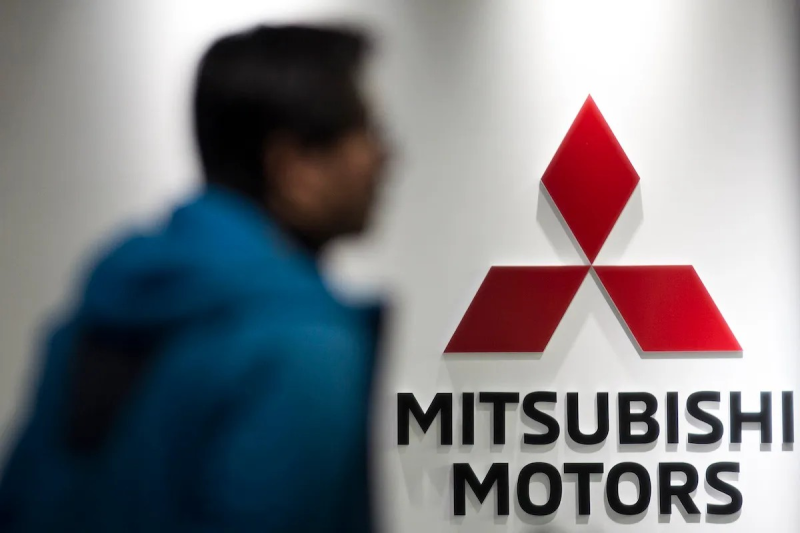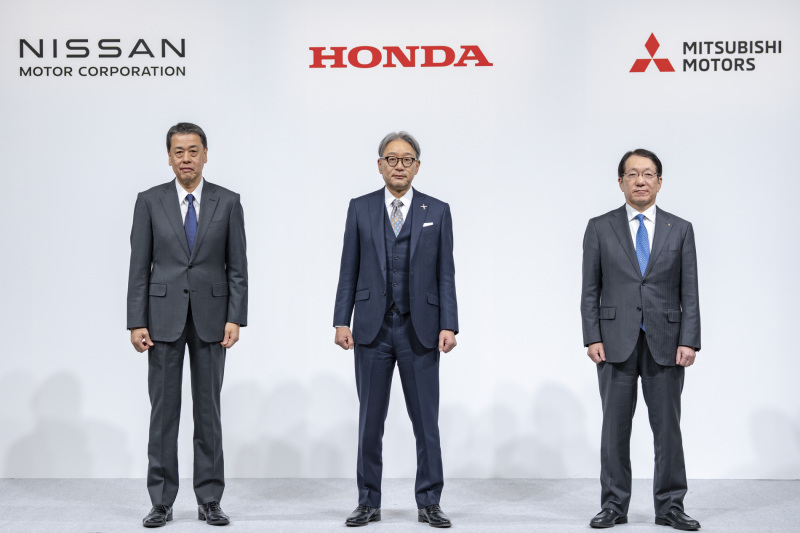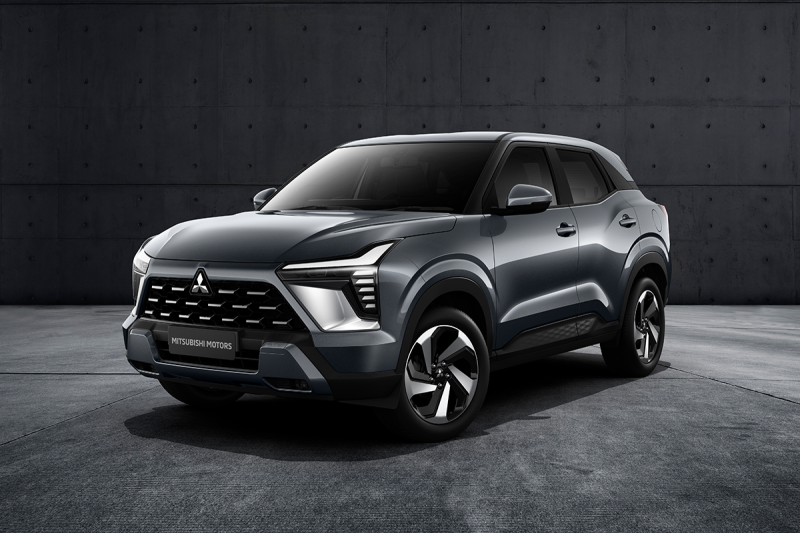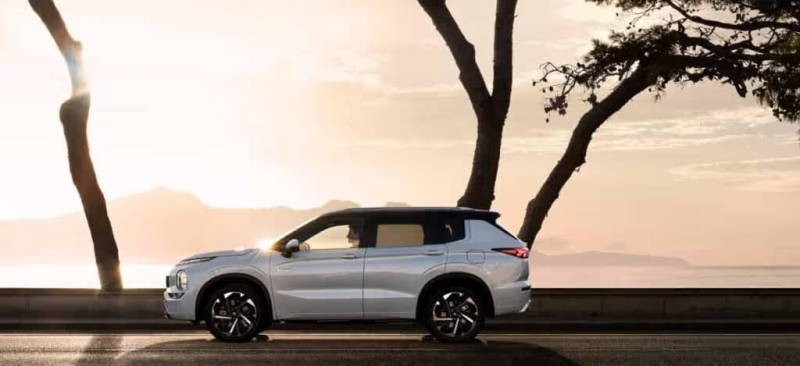Mitsubishi Cuts Full-Year Profit Forecast by 30%, Challenged by US Tariffs and Intensified Global Competition
 Kevin WongAug 28, 2025, 05:39 PM
Kevin WongAug 28, 2025, 05:39 PM

[PCauto] Japan's Mitsubishi announced on August 27, 2025, that it would revise its full-year operating profit forecast for the fiscal year ending March 2026 from the previously projected 100 billion yen (approximately 3.2 billion Malaysian ringgit) to 70 billion yen (approximately 2.24 billion Malaysian ringgit), a decrease of 30%.
This adjustment is primarily due to the impending implementation of import tariffs in the United States, intensifying competition in multiple global markets, and rising costs. After the news was released, Mitsubishi's stock price dropped 2% on the same day, closing at 401.5 yen.
The Direct Causes of the Profit Downgrade are Mitsubishi's Declining Sales and Cost Pressures
Globally, demand for gasoline-powered vehicles continues to weaken, and Mitsubishi's relatively slow pace in transitioning to electrification has led to market share losses in Europe and Southeast Asia to competitors like Toyota and Hyundai, which have been more proactive in launching electric models.
In addition, supply chain issues such as chip shortages have caused production delays and higher inventory costs, coupled with the yen's depreciation driving up the cost of imported components, making it difficult for Mitsubishi to fully pass on these additional expenses through price increases.
The financial burden in the short term has also been increased by investments in electrification, such as the development of pure electric models like the eX and battery technology, which have yet to yield significant returns.

Mitsubishi is Also Affected by the Alliance’s Dissolution
At an industry-wide level, Mitsubishi, as a member of the Renault-Nissan-Mitsubishi Alliance, is experiencing chain reactions from the alliance’s overall strategy adjustments. Due to Nissan’s losses, it has launched the "Re:Nissan" plan, which includes large-scale layoffs and plant closures. Mitsubishi is required to share the alliance’s coordinated costs, such as shared platforms and technology integration, which further squeezes profit margins.
The global automotive market environment is also deteriorating. The rise of Chinese new energy vehicle brands, such as BYD and NIO, is squeezing the market shares of traditional automakers, especially in Asia and Europe.
The U.S. tariff policy not only affects Mitsubishi but also poses challenges to other export-oriented automakers, highlighting the widespread impact of geopolitical risks on the industry.

The Global Automotive Industry Faces Challenges of Political and Economic Uncertainty
Mitsubishi CEO Takao Kato stated in a statement that the global automotive industry is facing challenges from geopolitical and economic uncertainties, especially the U.S. plan to impose a 15% tariff on imported cars starting in October, which will directly increase Mitsubishi's cost pressures in the U.S. market.
Some Mitsubishi models are exported to the U.S. from factories in Mexico, and the increased tariffs are expected to drive up end-user prices, impacting sales.
Meanwhile, Sales Vice President Tatsuo Nakamura added that to offset potential losses in the U.S. market, Mitsubishi has had to increase discounts in other markets such as Vietnam, Australia, Indonesia, and Germany to remain competitive. However, this further erodes profit margins.

Mitsubishi Accelerates Electrification Transition
In response to these challenges, Mitsubishi is accelerating its electrification transition, planning to launch several pure electric models by 2026 to enhance market competitiveness.
Mitsubishi is also deepening its partnerships with battery suppliers such as CATL and Samsung SDI, aiming to reduce battery costs and optimize supply chain efficiency. In terms of market strategy, Mitsubishi is withdrawing from inefficient markets like South America and reallocating resources to high-profit regions such as the Middle East and Australia to improve overall profitability.
However, these measures will take time to show results, and in the short term, the company will still face financial pressure.

Investors and the Market React Cautiously to Mitsubishi's Profit Downward Revision
The short-term decline in stock price reflects immediate concerns, but long-term investors are more focused on the company's transformation progress and future cash flow.
Continuous profit warnings may trigger credit rating agencies such as Moody's or Standard & Poor's to downgrade their outlook, thereby increasing financing costs and affecting Mitsubishi’s capital expenditure plans.

In fact, Mitsubishi's situation is not unique. Many traditional automakers are experiencing growing pains amid the wave of electrification, needing to balance short-term profitability with long-term investments.
The downward revision of Mitsubishi’s profit forecast is a combined result of industry transformation challenges and internal strategic adjustments. The challenges include the shrinking traditional fuel vehicle market, the long return cycle of electrification investments, and the intertwined risks of geopolitics and supply chain issues.
In the future, whether Mitsubishi can restore profitability through technological breakthroughs and market strategies will depend on its execution efficiency and the evolution of the global market environment.
If any infringement occurs, please contact us for deletion
Trending News

2026 New Proton S70 Upgrades from Three-cylinder to Four-cylinder, Significantly More Powerful!
Proton's 2026 S70 to be launched before Lunar New Year, with a key upgrade to a 1.5-liter four-cylinder turbocharged engine replacing the three-cylinder model, improving power smoothness, maintaining spaciousness, with the infotainment system and driver assistance possibly adapted to local road conditions, offering practical improvements tailored to the needs of Malaysian and Thai family users, aiding car purchase decisions.

In 2026, Should I Buy a Proton X50 or a Perodua Traz? Can the RM 6,000 Rebate Offset the Traz's Space Advantage?
Recently, one of the most frequently asked questions in the Malaysian market is: So, should you go for the Proton X50, which offers stronger performance and a greater sense of technology, or the Perodua Traz, which provides more space and is more budget-friendly? Especially considering the X50 has discounts of up to around RM 6,000, how significant is the price difference left to weigh? This article provides an objective analysis from the perspective of daily usage.

Toyota Estima to return in 2026?
Since it was discontinued in 2019, news about the return of the Toyota Estima to the market has never stopped. Although Toyota has not yet released any official announcements regarding mass-production vehicles, the related information does not come from scattered rumors but originates from continuous revelations by Japanese automotive media.

Why do Malaysians prefer the Toyota 2NR-VE engine?
When choosing a family car in Malaysia, locals have an unwritten standard: "Don't look at how good the performance parameters are, just see if it can run smoothly for ten years."

Donut Lab Announces Mass-Produced All-Solid-State Battery, Claims 5-Minute Full Charge
All-Solid-State Battery, which has long remained in the laboratory and concept stages, is now approaching a true commercialization milestone. Donut Lab announced that its All-Solid-State Battery is ready for mass production and will be first equipped on the Verge TS Pro electric motorcycle.
Popular Cars
Model Year
Car Compare
Car Photo

